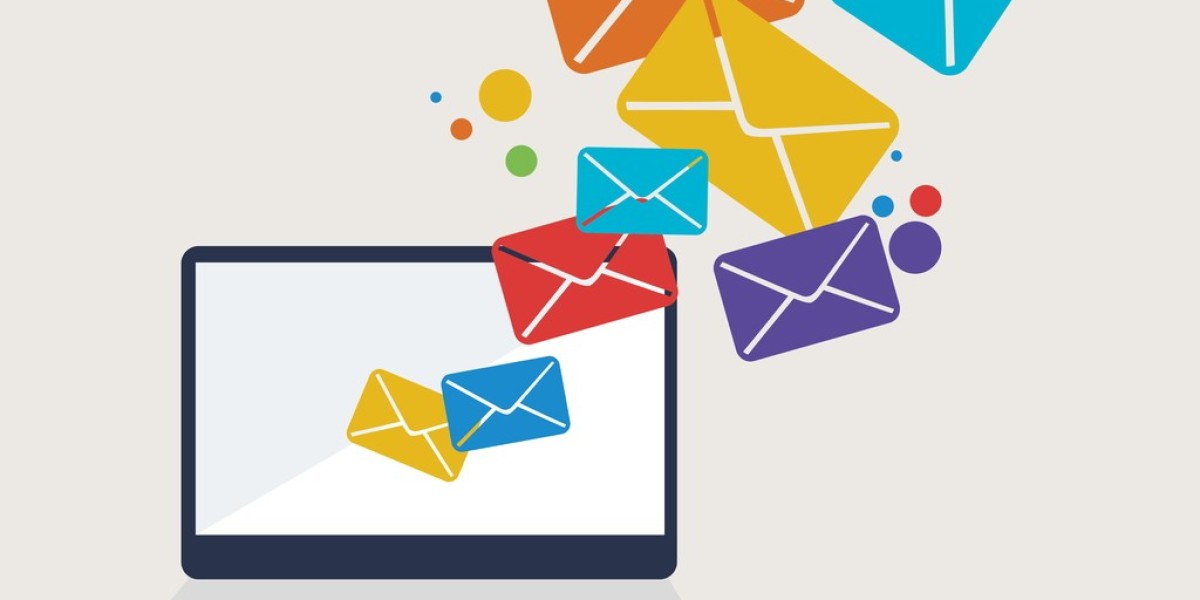In today’s fast-paced digital marketing landscape, the power of a well-curated USA email list cannot be overstated. Whether you’re a startup, small business, or an established enterprise, email marketing remains one of the most cost-effective and results-driven strategies. With a targeted email list specific to the United States, businesses can reach potential customers, drive engagement, and significantly boost conversion rates.
In this article, we’ll explore the value of a USA email list, how to build or buy one, strategies to effectively use it, and the legal considerations you need to keep in mind.
What is a USA Email List?
A USA email list is a collection of email addresses belonging to individuals or businesses based in the United States. These lists can be tailored to include specific demographics, industries, job titles, geographic locations, or consumer behaviors.
There are two main types of email lists:
B2C (Business-to-Consumer) – These lists target individual consumers based on interests, buying patterns, or demographics such as age, gender, and income.
B2B (Business-to-Business) – These lists include business contacts, such as company executives, decision-makers, and professionals, useful for offering products or services to other businesses.
Why a USA Email List is a Valuable Asset
Having a targeted email list focused on the U.S. market can provide several benefits:
1. High Market Potential
The United States has one of the world’s largest and most lucrative consumer markets. A USA email list enables businesses to tap directly into this massive audience.
2. Better Targeting
A U.S.-based email list can be segmented by state, city, zip code, or even customer preferences. This allows businesses to run highly targeted campaigns with greater personalization and relevance.
3. Cost Efficiency
Compared to other marketing channels such as pay-per-click advertising or print media, email marketing is relatively inexpensive. With a well-segmented USA email list, companies can get more bang for their buck.
4. Stronger Engagement
People are more likely to open and respond to emails that are relevant to their needs. A USA-specific list ensures your content is timely and culturally appropriate, increasing engagement rates.
How to Build a USA Email List
While it may be tempting to purchase a ready-made email list, organically building your list is often more effective and legally compliant. Here are some ways to build a strong USA email list:
1. Create Compelling Lead Magnets
Offer something of value in exchange for email addresses. This could be a free eBook, webinar, discount, or exclusive content tailored to your U.S. audience.
2. Use Opt-In Forms on Your Website
Include email subscription forms on landing pages, blog posts, and contact pages. Use geo-targeting tools to offer customized content for U.S. visitors.
3. Leverage Social Media
Run targeted campaigns on platforms like Facebook, Instagram, or LinkedIn, aimed at U.S. users, to drive traffic to your email sign-up forms.
4. Run Contests and Giveaways
Hosting contests that require email submission for entry is a fun and effective way to quickly grow your list.
Buying a USA Email List: What to Know
If you choose to buy a USA email list, make sure to do so ethically and responsibly. Consider these tips:
Choose Reputable Providers: Only buy lists from vendors who comply with GDPR and CAN-SPAM regulations.
Verify Data Accuracy: Ask for samples or a verification report to ensure the list is recent and relevant.
Check for Opt-In: Make sure the list consists of recipients who have opted in to receive communications.
However, be cautious—purchased lists often yield lower engagement and can harm your sender reputation if not used carefully.
Best Practices for Using a USA Email List
Once you have your USA email list ready, it’s time to put it to work. Here are some best practices to follow:
1. Segment Your List
Not all subscribers are alike. Segment your list by demographics, behaviors, or purchase history to send more personalized content.
2. Craft Compelling Subject Lines
Your subject line is the first thing a recipient sees. Make it engaging and relevant to improve open rates.
3. Provide Valuable Content
Focus on content that educates, entertains, or solves a problem. This keeps your audience engaged and reduces unsubscribe rates.
4. Include Clear Calls-to-Action
Every email should have a clear goal—whether it’s clicking a link, making a purchase, or filling out a form.
5. Test and Optimize
Run A/B tests on subject lines, layouts, and send times to find what resonates best with your U.S. audience.
Legal and Ethical Considerations
It’s critical to follow all applicable laws when collecting and using email addresses, especially within the U.S.
CAN-SPAM Act: This U.S. law requires that you include a clear unsubscribe option, truthful subject lines, and your physical address in all commercial emails.
GDPR: If any of your U.S. contacts are also EU citizens, you must comply with GDPR regulations.
Privacy Policies: Make your data collection practices transparent. Let users know how their information will be used.
Failing to comply with these laws can result in hefty fines and damage to your brand reputation.
Tools to Manage Your USA Email List
There are many tools and platforms available to help you manage, automate, and analyze your email marketing efforts:
Mailchimp
Constant Contact
HubSpot
ActiveCampaign
Sendinblue
These tools offer features like list segmentation, automation, A/B testing, and analytics that make it easier to manage your USA email list effectively.
Final Thoughts
A well-maintained USA email list is one of the most powerful marketing tools available to any business targeting the American market. Whether you choose to build your list organically or purchase it from a reliable source, the key is to maintain ethical standards, provide value to your audience, and continually optimize your email strategy.
By focusing on relevance, personalization, and compliance, you’ll not only see better open and click-through rates but also build long-term relationships with your U.S. audience—resulting in greater brand loyalty and higher ROI.



